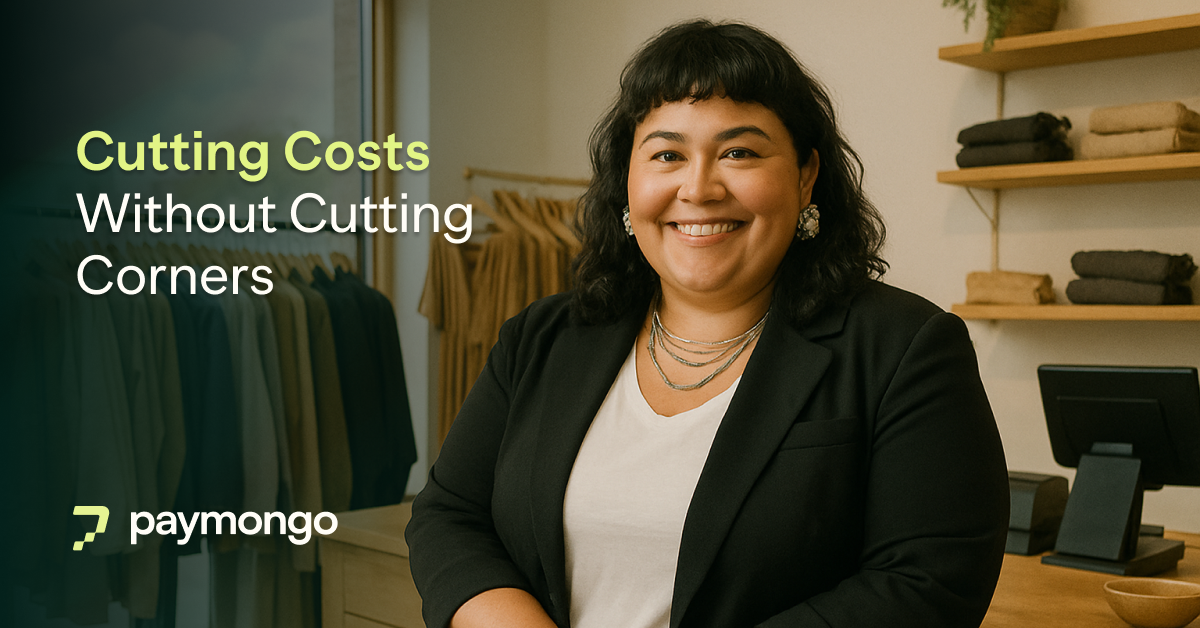Cutting Costs Without Cutting Corners

Table of Contents
Warren Buffett once said, “Price is what you pay. Value is what you get.”
Running a business—whether it’s a neighborhood café, a growing online brand, or a logistics startup—means constantly walking the line between growth and expenses. With rising costs on everything from materials to rent, many business owners feel the pressure to trim budgets wherever possible. But cutting costs doesn’t have to mean sacrificing quality, service, or long-term potential.
Here are 7 practical ways to lower your business expenses without lowering your standards.
1. Audit your monthly expenses, don’t let them pile up quietly
You’d be surprised how much you’re spending on tools or services you barely use. Many businesses fall into the “set and forget” trap: subscriptions that renew automatically, overlapping services, or unused upgrades.
What you can do:
- Review your expenses every 3 months
- Cancel duplicate or underused services
- Look for bundled plans or discounts for loyal customers
Local example:
Bean & Yolk, a breakfast café in Makati, saved thousands by dropping two redundant design tools and switching to one all-in-one platform for content and publishing.
2. Buy only what you can sell, when you can sell it
Having too much stock ties up money. Having too little loses you customers. The sweet spot is knowing what sells, how fast, and when.
What you can do:
- Track bestsellers closely and restock based on demand
- For slow movers, switch to pre-orders
- Consider consignment for high-risk items
Local example:
Common Room, a multi-brand creative store, partners with artists and crafters on a consignment basis—so products that don’t sell don’t sit. That way, they keep inventory fresh without overspending.
3. Outsource when it makes more sense than hiring
Not every job needs a full-time employee. Graphic design, bookkeeping, and social media can be done project-by-project or by the hour.
What you can do:
- Hire freelancers for non-daily tasks
- Set clear deliverables so both sides are aligned
- Ask fellow business owners for trusted referrals
Local example:
Theo & Philo, an artisanal chocolate brand, works with freelance designers for their seasonal packaging. This keeps things flexible and costs lower without compromising creativity.
4. Automate the repetitive stuff, free up your time
As a business owner, your time should go toward growth—not chasing invoices or manually sending order updates.
What you can do:
- Set up auto-reminders for payments
- Use tools that update customers when orders are shipped or delivered
- Automate recurring tasks like payroll or staff scheduling
Local example:
Rags2Riches, a homegrown ethical fashion brand, uses simple automation tools like cutting down on back-and-forth and speeding up production to send updates to their community of artisans.
5. Don’t be afraid to negotiate, especially with regular suppliers
If you’ve been buying from the same supplier for a while, chances are they’re open to better terms. Loyalty often comes with perks—you just need to ask.
What you can do:
- Ask for discounts if you pay early or buy in bulk
- Compare prices from other vendors once a year
- Negotiate rent renewals, especially during slow seasons
Local example:
Bayani Brew, which sources from Filipino farmers, secured better pricing by committing to predictable orders—helping both their business and their partners.
6. Stick to the marketing that works hardest for you
You don’t need to be on every platform. You just need to show up where your customers already are.
What you can do:
- Focus on 1–2 channels where you get the most engagement
- Repurpose your content instead of making new ones from scratch
- Track simple metrics like engagement, click-throughs, and inquiries
Local example:
The Lost Bread, known for its creative desserts, uses a single set of product shots across Facebook, Instagram, and TikTok. The strategy saves them time and boosts visibility without additional cost.
7. Make it easier for people to pay you
A lot of small businesses lose money not because they lack customers, but because getting paid takes too long or is too confusing.
What you can do:
- Accept payments via e-wallets, QR Ph, and credit/debit cards
- Choose a payment partner that lets you track everything in one place
- Aim for faster settlements so your cash flow stays healthy
Local insight:
More than 60% of Filipino consumers prefer paying with GCash, Maya, or QR Ph. Offering digital payments isn’t just a convenience—it can directly impact your sales.
The PayMongo Advantage: Smarter Money Movement for Small Businesses
At PayMongo, we’ve seen firsthand how better payment tools can help businesses thrive. When payments are faster, simpler, and easier to track, you spend less time chasing money—and more time making it.
Here’s how PayMongo can help you cut costs without cutting corners:
✅ Accept payments from cards, e-wallets, and QR Ph in one place
✅ Get paid faster—no more long waits for bank transfers
✅ Automate payment confirmations and reconciliation to save admin time
✅ Transparent pricing—no surprise fees eating into your margins
Bonus: Businesses that accept digital payments tend to grow revenue by 15–20% and get paid up to a week faster.
Spend smarter. Grow stronger.
Cutting costs isn’t about doing less. It’s about doing better. By making more intentional choices with your money, you can keep your business lean, resilient, and ready to grow—no shortcuts needed.
Ready to streamline your payments and unlock better cash flow?
Sign up for free or talk to our team today.
Subscribe to the PayMongo Blog
Join thousands of business owners in getting the latest financial insights




.png)

